'Russia Is Not Colder, but Weather Contrasts Are Greater Here.' What HSE Scientists Shared with Visitors at 'Russia' Forum

On February 7, the lecture hall of the Russian 'Znanie' ('Knowledge') Society hosted a series of talks by HSE researchers and faculty as part of the 'Russia' International Exhibition and Forum. The talks covered a diverse array of topics, such as the interplay between innovation and creativity, how values are passed down between generations, debunking myths about Russia, the principles of successful communication in various contexts, and the concepts of collectivism and individualism. The events were open to the public.
This is not the first time that speakers from HSE University have addressed the audience at the venue of the Russian 'Znanie' Society at Pavilion No. 57, VDNKh. A week and a half ago, it hosted a series of talks on artificial intelligence and its potential applications in science and everyday life, and on specific aspects of scientific communication. This time, the lectures centred around social and human-interest topics presented by early-career researchers and faculty members.
Innovation and Creativity
According to Viktoriya Boos, Leading Expert at the HSE ISSEK Russian Cluster Observatory, innovation and creativity are two closely related concepts, and the boundaries between them can be blurred. The talk focused on the distinctions between the two, emphasising a key insight that in urban settings, they not only coexist, but also mutually reinforce each other.
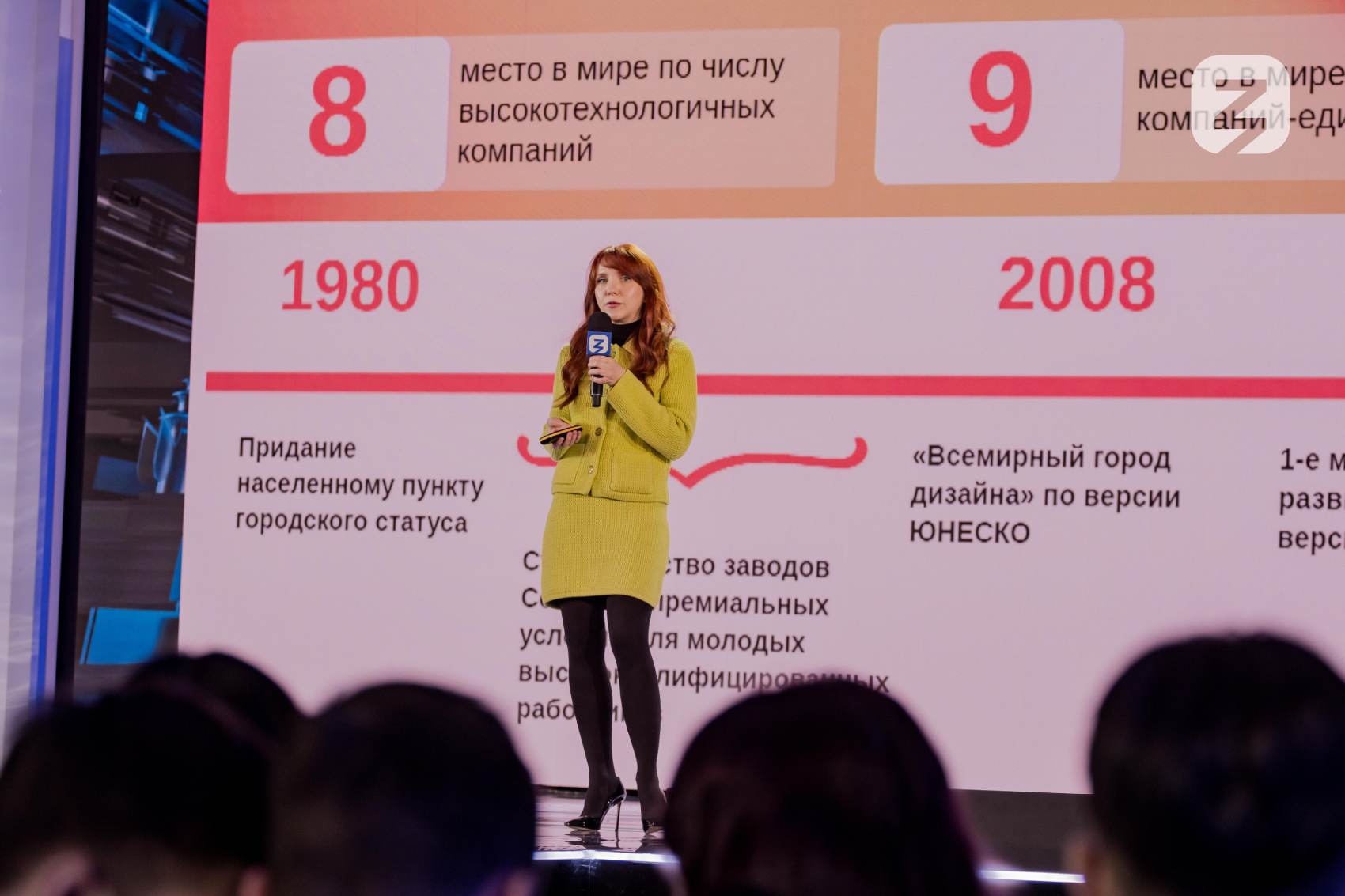
'Innovation manifests as the culmination of innovative activity, materialising in the form of a new or improved product, production process, business methodology, workplace organisation, or external relationships,' Boos explained. 'Crafting a creative product requires more than just novelty, but also individual creativity; however, such a product may not necessarily be more advanced or cost-effective.'
Nevertheless, the speaker believes that innovations have the potential to strengthen creative industries, while creative industries can serve as a source of inspiration for innovators. Ultimately, humanity's most remarkable accomplishments have emerged at the intersection of science and creativity, and cities that outshine others in innovation often boast thriving creative industries. This is true for Russia and for other countries worldwide.
'Perhaps the popularity of engineering professions might increase if university applicants and graduates were more aware of the link between individual creativity and technology,' Boos concluded.
Passing Down Values
Dmitrii Dubrov, Research Fellow at the HSE Centre for Sociocultural Research, discussed the nuances of how values are transmitted from the older to the younger generation in urban and rural settings.
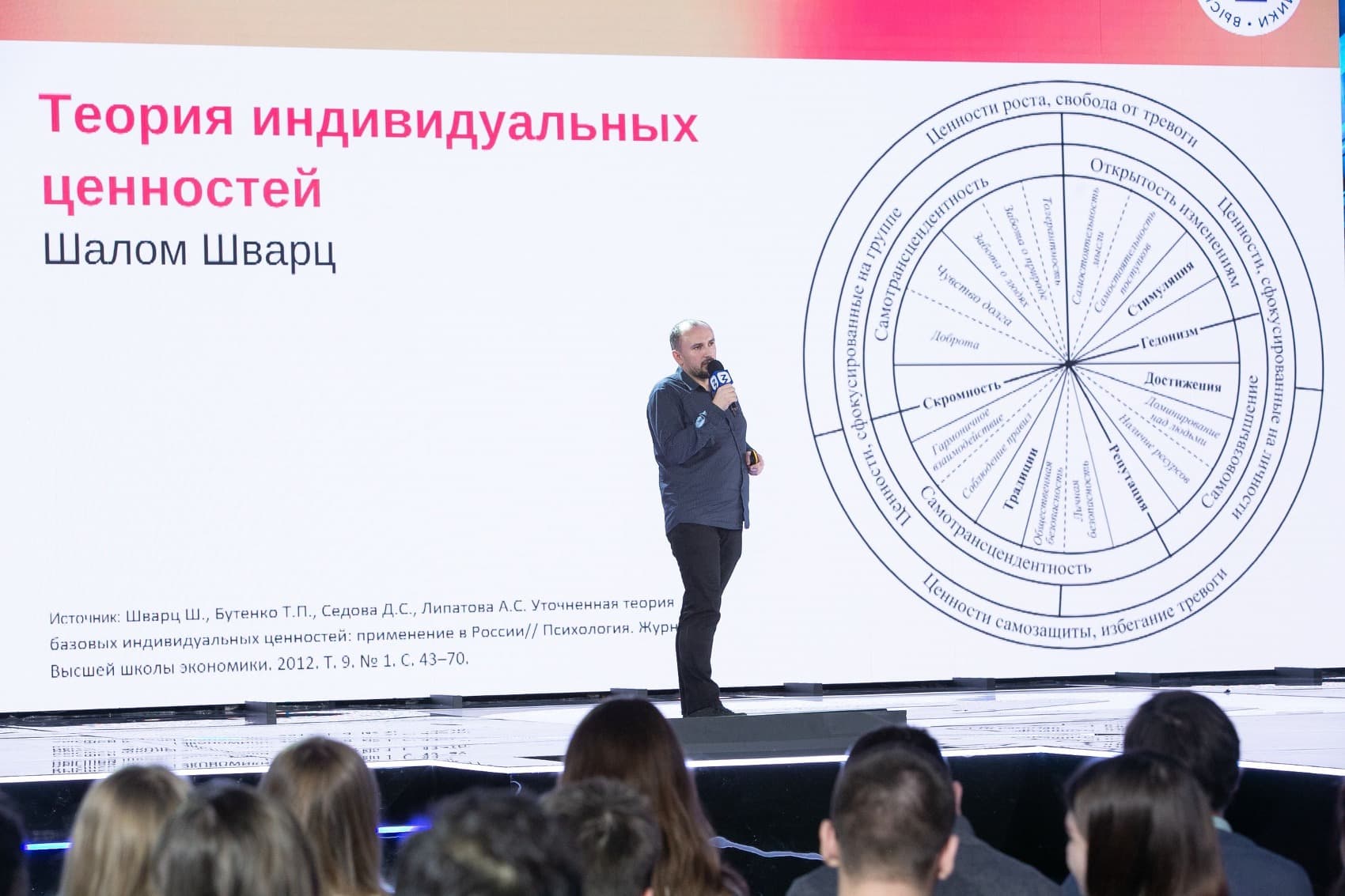
'Teenagers living in rural areas are more inclined than their urban peers to adopt the values of collectivism passed down by their parents, given the stronger emphasis on social norms in villages compared to cities. Urban youth are more likely to adopt the values of individualism, but much depends on the parents’ attitudes. In families characterised by trust, warmth in relationships, and mutual support, the values of benevolence, caring for others, and conservation of nature are more readily embraced by the younger generation, irrespective of the context,' the speaker explained.
According to Dubrov, the degree of alignment between the values held by teenagers and their parents varies between urban and rural settings. In urban families, this alignment tends to be slightly higher in value domains such as openness to change, self-transcendence, and self-enhancement, whereas in rural families, alignment in values associated with conservation is more common. In both urban and rural settings, teenagers are more inclined to share the values of their peers rather than those of their parents.
Explore further how rural teenagers embrace their parents' conservatism here.
Dismantling Myths about Russia
Sergey Barinov, Chief Analyst at the HSE Faculty of Geography and Geoinformation Technology, addressed four widespread myths about Russia. Myth one: The climate is extremely cold. Myth two: Russians consume a lot of alcohol. Myth three: Russians are often grim and unhappy. Myth four: Russians are lazy. In his talk, he presented arguments grounded in research and published data to debunk these myths.
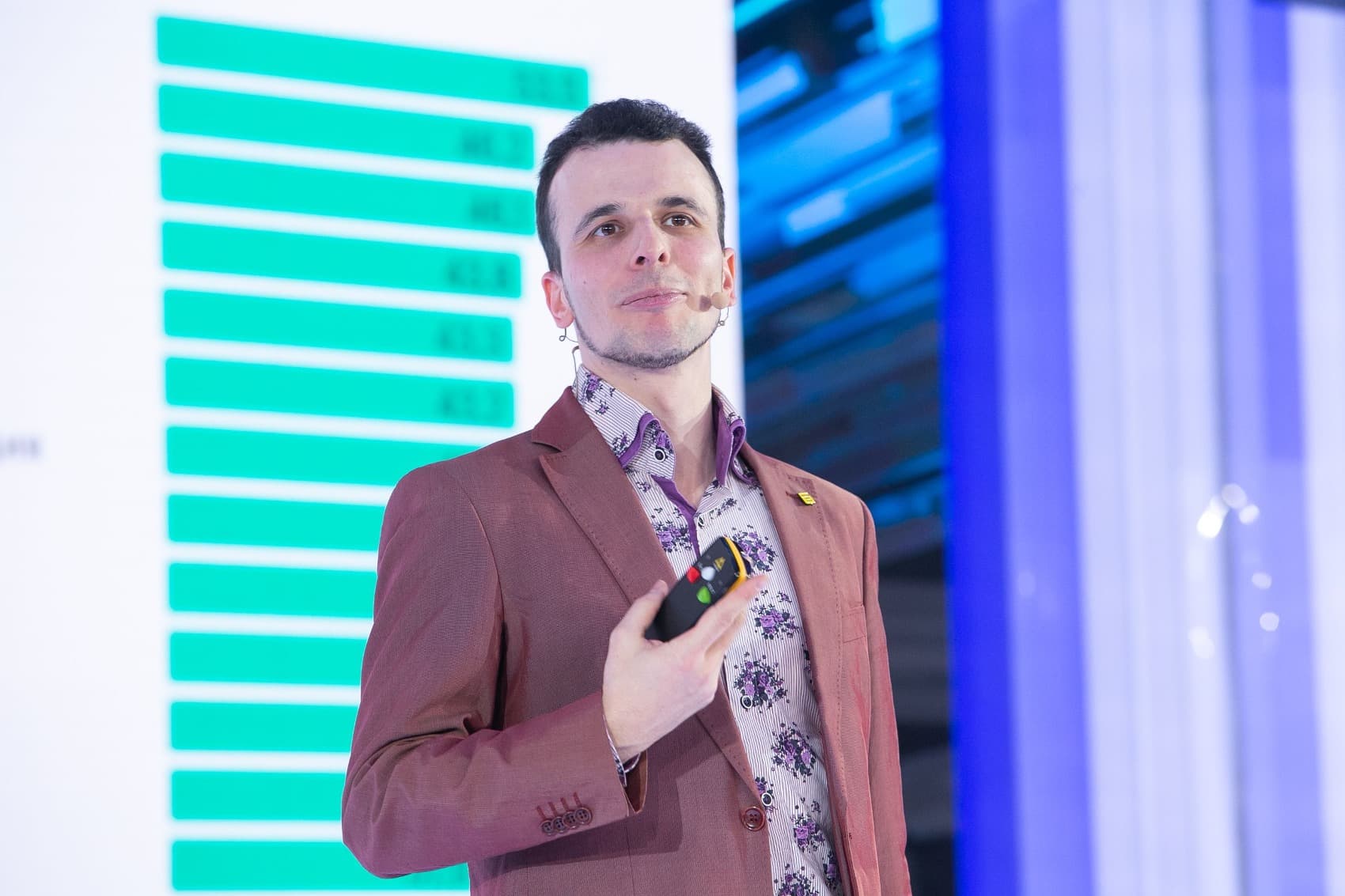
In terms of average annual temperature, Russia is indeed one of the coldest countries in the world. However, there are nuances to consider. While the contrast is significant compared to the Mediterranean region, which has a population of 200 to 300 million, China, with its one and a half billion inhabitants, is only 10 degrees Celsius warmer than Russia. In Paris, the average temperature in January is plus 4 degrees, and in summer it is plus 19 degrees Celsius. However, in Saratov, a city that lies at the same latitude as Paris, the average temperatures are minus 8 degrees in January and plus 22 degrees in July. Russia is not colder, but weather contrasts are greater here,' Barinov concluded.
In terms of alcohol consumption, by the late 2000s, Russia ranked among the top three drinking countries globally. By the mid-2010s, its position had dropped to the top five, and currently, it doesn't even rank in the top twenty. 'The Russian Ministry of Health and the WHO attribute the effect to restrictions on alcohol sales, while European researchers highlight the role of shifts in alcohol consumption culture and the general improvement in living standards. Clearly, the contributions of all these factors should be considered,' the speaker summed up.
Likewise, he referred to compelling evidence to refute the myths of Russians being grim, unhappy, and lazy.
Code Switching
Ekaterina Ustyugova, Manager of the HSE Library Reference Unit, invited the audience to reflect on how our speech, including vocabulary, intonation, and non-verbal aspects of conversation, adapts depending on who we address and under what circumstances. Throughout the lecture, she covered both oral and written forms of communication.
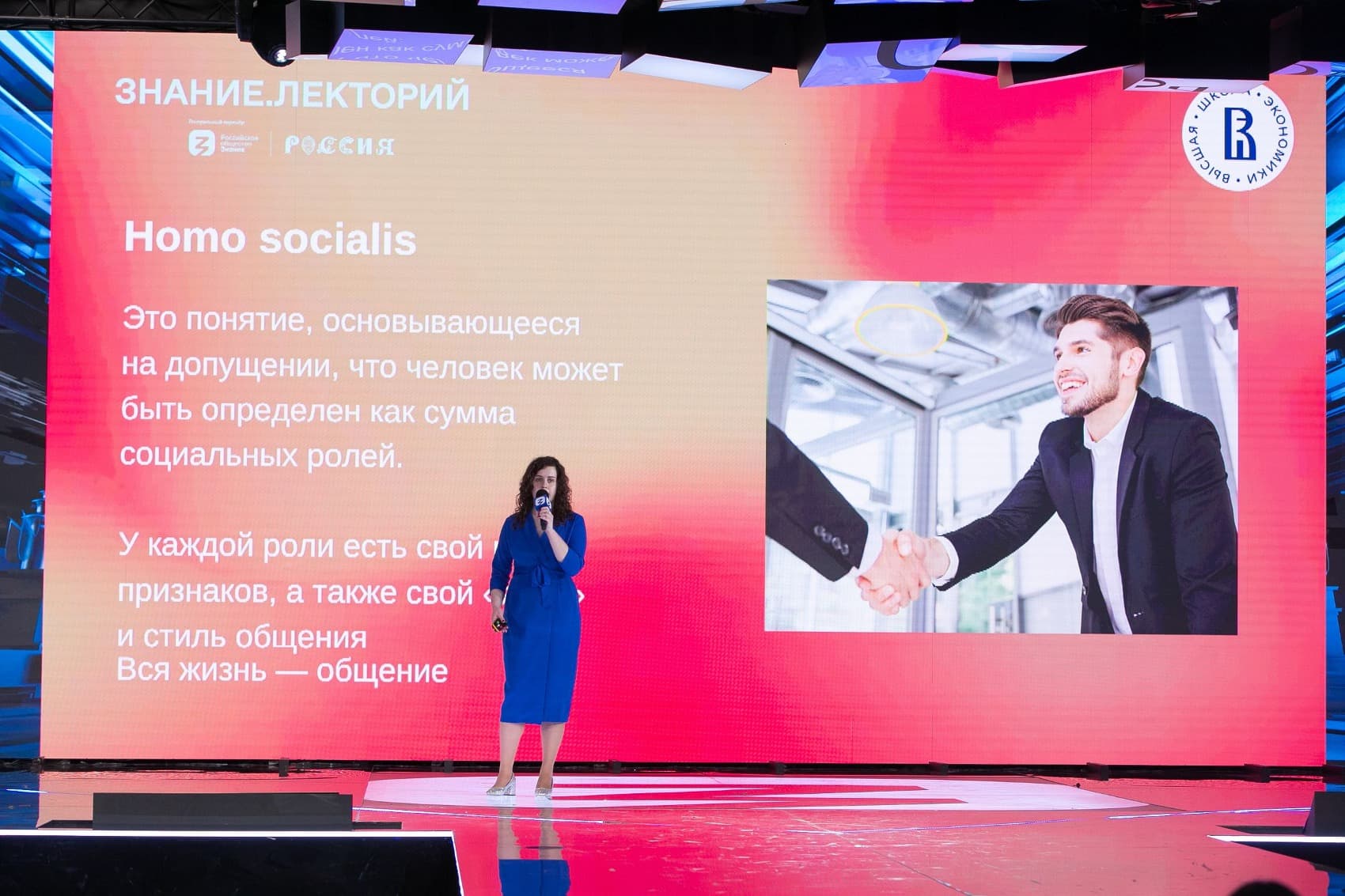
'Together with the audience, we explored changes in communication style in the context of social roles and etiquette norms. The focal point of the lecture was to demonstrate how various communication styles can be employed to facilitate successful communication in virtually any situation,' according to Ustyugova.
The lecture content draws from her professional experience as a librarian, as working with library users involves extensive communication with persons from various fields of activity, diverse organisations, and different countries, and in languages including English, German, and Italian, as well as Russian.
'I am grateful to the Russian "Znanie" Society for the opportunity to address such a significant and large-scale event and, of course, for the practical advice and feedback provided during my training and certification processes,' Ustyugova said.
Collectivism and Individualism
The lecture by Albina Gallyamova, Research Assistant at the HSE Centre for Sociocultural Research, focused on the impact of subjective culture on various aspects of a country's life, including factors such as GDP levels, innovation rates, and more. A special emphasis in the talk was on how various environmental factors could contribute to the development of collectivism and individualism. For instance, in regions where the risk of contracting an infection is higher, collectivism tends to be more prevalent, serving as a protective mechanism against new diseases.
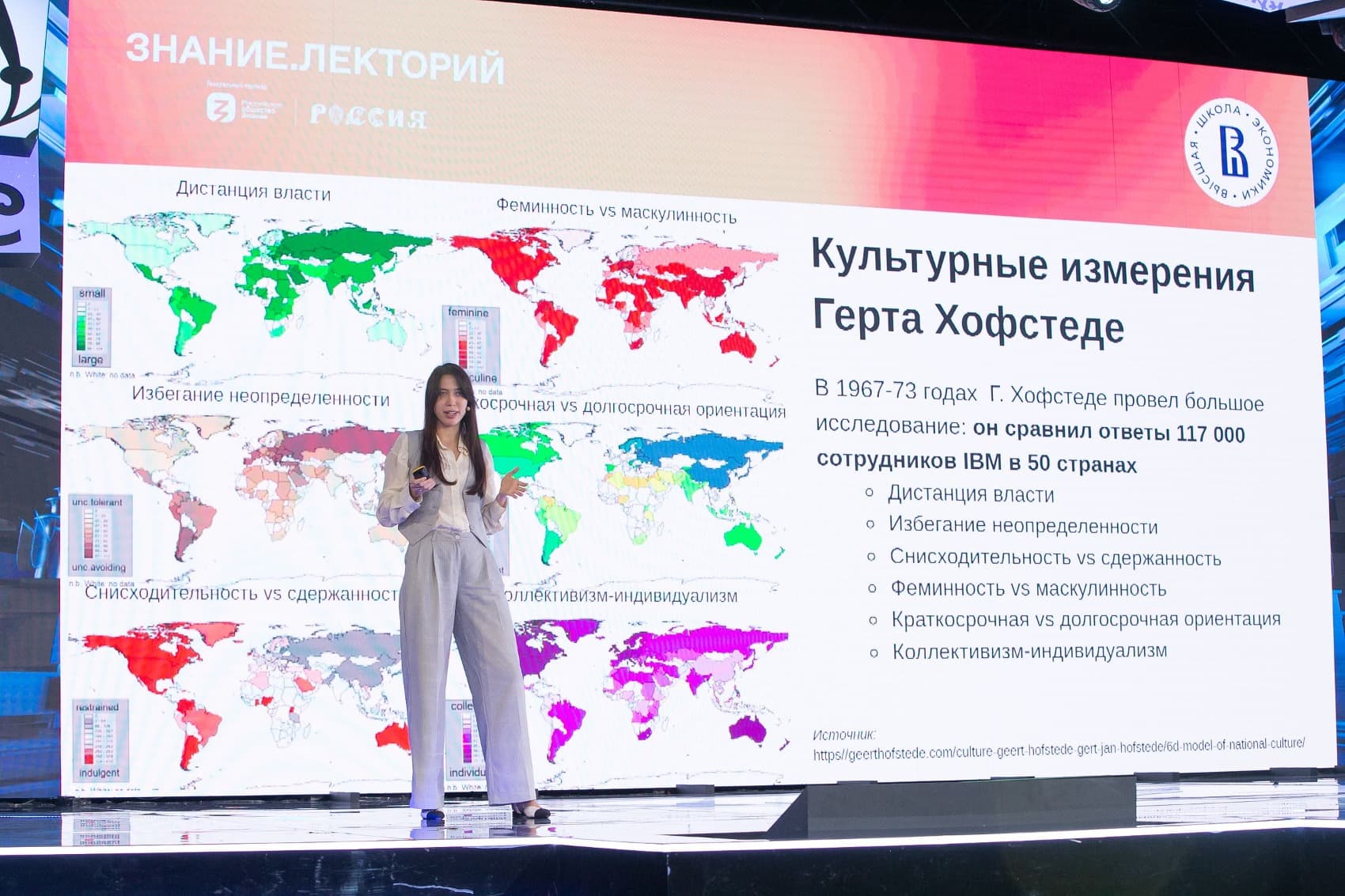
'Addressing a mass audience is an engaging format,' she explains. 'On one hand, there is a genuine interest, but on the other hand, many listeners may lack an academic background in the topic covered. It's important to consider this aspect when preparing the presentation, since addressing it will not only help get the message across, but ensure that the audience members enjoy the experience.'
Albina has joined an international project exploring people's trust in scientists across countries (a paper has been submitted for consideration) and has initiated her own popular science project called ‘Why Are We Like This?’ featuring a video podcast and a Telegram channel. Together with a colleague, she examines various everyday phenomena from a scientific perspective.
'I wasn't nervous during my talk,' she shared. 'It was rewarding to take interesting questions—it showed that my presentation had engaged the audience. I'm delighted that there are people who appreciate what I'm studying, and it motivates me to keep working.'

